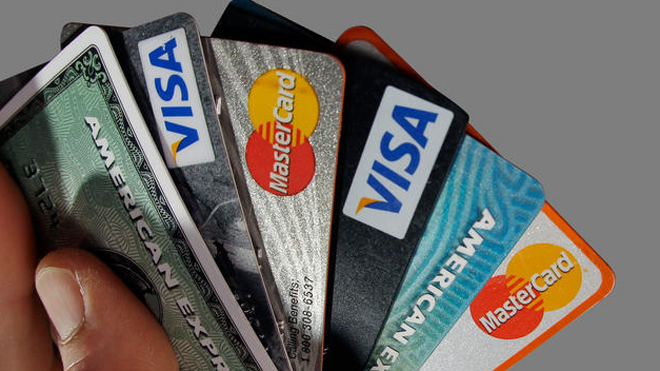
Credit cards have become ubiquitous in today’s society, offering consumers a convenient and flexible way to make purchases and manage their finances. However, not all credit cards are created equal, as they come with a variety of features and characteristics. In this article, we will delve into the different aspects of credit cards, discussing their advantages and disadvantages to help consumers make informed decisions about which type of card best suits their needs.
Credit cards come with a variety of features that make them a popular choice among consumers. Here are some key features:
Credit Limit
Every credit card comes with a predetermined credit limit, which represents the maximum amount of money that cardholders can borrow from the card issuer. The credit limit is based on factors such as the cardholder’s credit history, income level, and existing debt obligations. A higher credit limit provides greater purchasing power but also carries the risk of overspending and accumulating debt.
Interest Rates
Credit cards typically charge interest on outstanding balances that are not paid in full each month. The interest rate, also known as the annual percentage rate (APR), varies depending on the card issuer, cardholder’s creditworthiness, and prevailing market conditions. Low-interest credit cards offer lower APRs, making them ideal for cardholders who carry balances from month to month. On the other hand, high-interest credit cards may come with higher APRs, which can lead to significant interest charges if balances are not paid off promptly.
Fees
Credit cards often come with a range of fees, including annual fees, late payment fees, foreign transaction fees, and balance transfer fees. Annual fees are charged by some credit cards for the privilege of card ownership and may be waived for the first year as a promotional offer. Late payment fees are imposed when cardholders fail to make their minimum monthly payments by the due date. Foreign transaction fees are levied on purchases made in foreign currencies or outside the cardholder’s home country. Balance transfer fees are incurred when cardholders transfer balances from one credit card to another.
Rewards Programs
Many credit cards offer rewards programs as an incentive for cardholders to use their cards for purchases. These rewards programs may include cash back, travel rewards, airline miles, or points that can be redeemed for merchandise, gift cards, or statement credits. Cardholders earn rewards based on their spending patterns, with higher rewards typically offered for specific categories such as dining, groceries, or gas purchases. While rewards programs can provide valuable benefits, they may also come with limitations, such as expiration dates, earning caps, or blackout dates for redemption.
Introductory Offers
Some credit cards entice new applicants with introductory offers, such as 0% APR promotional periods for purchases or balance transfers. These promotional periods typically last for a specified duration, such as six months to a year, after which the standard APR applies. Introductory offers can help cardholders save money on interest charges or consolidate debt more affordably, but it’s essential to understand the terms and conditions of the offer and budget accordingly.
Security Features
Credit cards are equipped with various security features to protect cardholders against fraud and unauthorized transactions. These security features may include EMV chip technology, which generates unique transaction codes for each purchase, reducing the risk of counterfeit card fraud. Additionally, many credit cards offer zero liability protection, which shields cardholders from liability for fraudulent charges if their card is lost or stolen.
Advantages of Credit Cards

Convenience: Credit cards offer unparalleled convenience, allowing cardholders to make purchases online, in-store, or over the phone without the need for cash or checks. With a credit card, consumers can enjoy seamless transactions and instant access to funds, making shopping and bill payment more convenient than ever before.
Emergency Funding: Credit cards serve as a valuable financial safety net in emergencies, providing quick access to funds for unexpected expenses such as car repairs, medical bills, or home repairs. In times of crisis, having a credit card on hand can help alleviate financial stress and cover essential expenses until other sources of funding become available.
Build Credit History: Responsible credit card usage can help individuals establish and build their credit history, which is essential for obtaining loans, mortgages, and other forms of credit in the future. By making timely payments and maintaining low credit card balances, cardholders can demonstrate their creditworthiness to lenders and improve their credit scores over time.
Rewards and Benefits: Many credit cards offer rewards programs, sign-up bonuses, and exclusive perks such as travel insurance, purchase protection, and extended warranties. Cardholders can earn cash back, airline miles, or other rewards on their everyday purchases, effectively earning discounts or freebies for their spending.
Consumer Protections: Credit cards offer valuable consumer protections that are not available with other forms of payment, such as debit cards or cash. These protections may include fraud liability protection, dispute resolution services, and purchase protection against damaged or defective merchandise. In the event of fraudulent activity or billing errors, credit card issuers typically offer assistance and support to resolve the issue promptly.
Disadvantages of Credit Cards
High-Interest Rates: Credit cards often come with high-interest rates, especially for cardholders with less-than-perfect credit scores. Carrying a balance on a high-interest credit card can lead to substantial interest charges over time, increasing the overall cost of purchases and potentially trapping cardholders in a cycle of debt.
Fees and Charges: Credit cards may impose various fees and charges, including annual fees, late payment fees, and foreign transaction fees. These fees can add up quickly and erode the value of rewards earned on the card, especially for cardholders who do not fully understand or monitor their fee obligations.
Risk of Overspending: The convenience of credit cards can tempt cardholders to overspend beyond their means, leading to financial strain and debt accumulation. Without proper budgeting and self-discipline, credit card users may find themselves struggling to repay their balances and falling into a cycle of revolving debt.
Impact on Credit Score: Mismanaging credit card accounts can have a negative impact on the cardholder’s credit score, making it more challenging to qualify for loans, mortgages, or other forms of credit in the future. Late payments, maxed-out credit limits, and high credit utilization ratios can all lower credit scores and hinder financial stability.
Fraud and Security Risks: Credit cards are susceptible to fraud and security risks, including identity theft, skimming, and phishing scams. Cardholders must remain vigilant and take proactive measures to protect their card information, such as safeguarding their card physically, monitoring their account activity regularly, and reporting any suspicious transactions to their card issuer promptly.
Conclusion
Credit cards offer a range of features and characteristics that can benefit consumers in various ways, from convenience and rewards to emergency funding and consumer protections. However, they also come with potential drawbacks, including high-interest rates, fees, and the risk of overspending and debt accumulation. By understanding the advantages and disadvantages of credit cards and practicing responsible credit card management, consumers can maximize the benefits of their cards while minimizing the associated risks.


